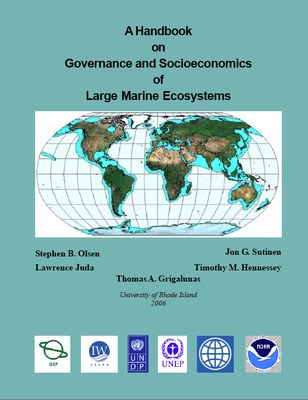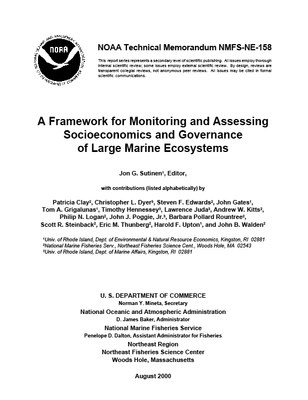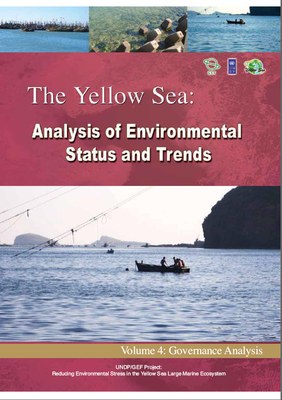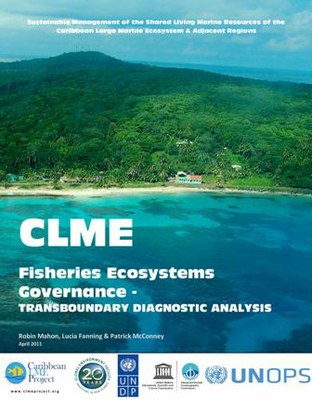Examples of governance analysis in marine systems
A Handbook on Governance and Socioeconomics of LMEs

The primary purpose of this Handbook is to serve as a practical guide to innovators of governance and socioeconomics in Large Marine Ecosystem (LME) projects.
The Handbook explains why governance and socioeconomics are important to the success of resource management in the LME context. Good governance and socioeconomics can lead to good outcomes; bad governance and socioeconomics nearly always doom management efforts to failure.
To improve the chances of successful management, the Handbook explains the basic principles and ingredients that make for good governance and socioeconomics – at all phases of LME project development, from the Transboundary Diagnostic Analysis to the Strategic Action Program, and implementation of adaptive management and sustainable financing.
Implementation of adaptive management and sustainable financing. A Framework for Monitoring and Assessing Socioeconomics and Governance of Large Marine Ecosystems

This comprehensive report provides a framework for linking the LME socioeconomic and governance modules with the natural resource science-based LME modules (productivity, fish and fisheries, and pollution and ecosystem health).
In particular there is a very useful section on Monitoring and Assessment which uses a stepwise process of monitoring and assessing the human dimensions of an LME and the use of its resources, including governance interactions.
The Yellow Sea: Governance Analysis Reports (2008), UNDP/GEF Yellow Sea Project, Ansan, Republic of Korea

This document contains reports on governance Analyses conducted under the UNDP/GEF Project entitled, “Reducing Environmental Stress in the Yellow Sea Large Marine Ecosystem.”
The publication consists of three reports: The National Governance Analysis for China, The National Governance Analysis for Republic of Korea, and a Regional Governance Analysis. The national reports describe governance issues in the Yellow Sea in terms of stakeholders, national institutions, and national policies and legislations. The regional analysis addresses the issues from regional perspectives, providing suggestions on how to improve the current co-operative mechanisms in the Yellow Sea.
Research institutes and universities in the region conducted data collection and analysis. Data were collected from online data bases, data information centres, peer-reviewed journal articles, universities, and through interviews with regional experts. The results of the Governance Analyses were used to provide the basic foundation for identifying possible interventions to mitigate the transboundary problems of the Yellow Sea, and greatly contributed to the Yellow Sea TDA and SAP.
The Caribbean LME: TDA Update for Fisheries Ecosystems: Governance Issues (2011)

This Caribbean LME Governance Report addresses the governance aspects of updating the TDA and causal chains for the CLME Project.
It begins by providing an overview of the governance issues identified in the preliminary TDA. It then reviews the LME Governance Framework that was developed for and adopted by the project as a basis for the project design during the PDF-B. Next the report reviews advances in ocean governance thinking globally and regionally that should assist the project to move forward.
Finally, the report considers how the original governance perspective, as well as the subsequent advances in ocean governance, can be incorporated into the new orientation towards a fishery ecosystem-based approach to provide the most comprehensive and up-to-date approach to governance for the CLME Project.
The fishery ecosystem-based approach was adopted early in the Full Project which is now oriented towards three fishery ecosystems: the continental shelf, the pelagic and the reef fishery ecosystems.

























